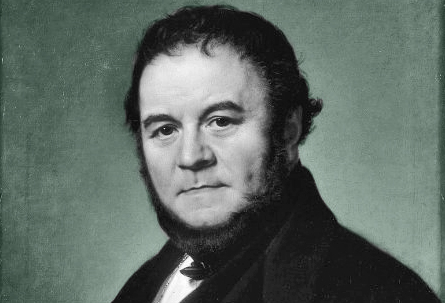
Later in life, Stendhal would declare, “The honor of having inspired me with the greatest passion, is to be debated between Mélanie, Alexandrine, Métilde and Clémentine.” Below, Stendhal writes to “Clémentine”—the comtesse Curial, née Clémentine Beugnot—with what certainly seems to be an apology for having strayed.
[Paris, October 1824]
My dear one, so that you may suffer as little as possible from my extravagances, I am about to play the fool—that is, to speak to you of myself.
My good qualities, if I have any, depend upon other qualities which, if not extremely bad, are at least disagreeable, but even more displeasing to myself than to others. I compare myself to a conscript who arrives in a regiment of dragoons. He is given a horse: if he has a grain of sense, he quickly acquaints himself with the qualities of this horse. The virtue of a horse depends upon its character: but mere awareness that the horse one rides is restive does not take away the horse’s quality of restiveness. Now, the same is true of my character: especially in the last two years, I have begun to understand it. Its faults were scarcely evident in Italy, where everyone is an original and does only what pleases him, without “bothering about his neighbor.” In France one does always ask oneself: “What will the neighbors think?”
Do not have the least uneasiness on my account. I love you to the point of passion: this perhaps means that my love does not resemble that which you have seen in society or in novels. I could wish that, in order to spare you disquiet, it might resemble whatever is the most tender thing you have ever experienced. I am sad when I think that you must have been sad on Thursday, Friday and Saturday. Ought we to add to the contrarieties that pursue us? If you had done such a thing, I would have been beside myself. Is it inevitable that my accursed originality should have given you a false idea of my devotion?
X


